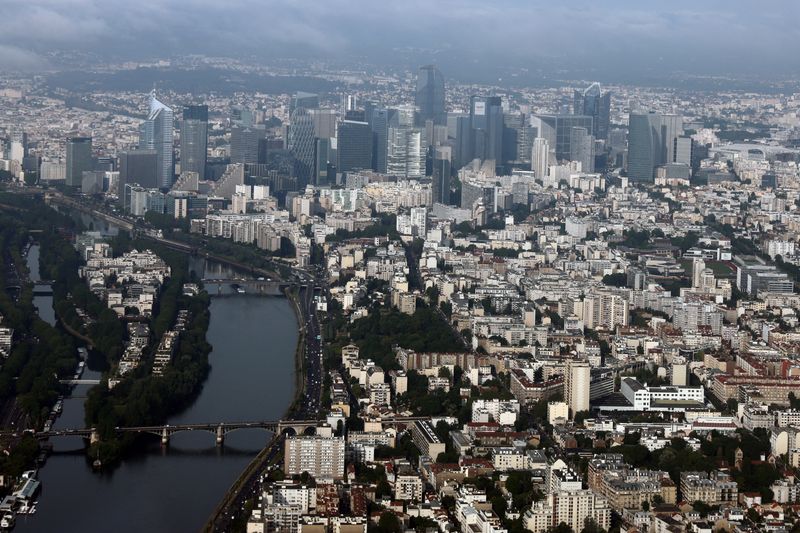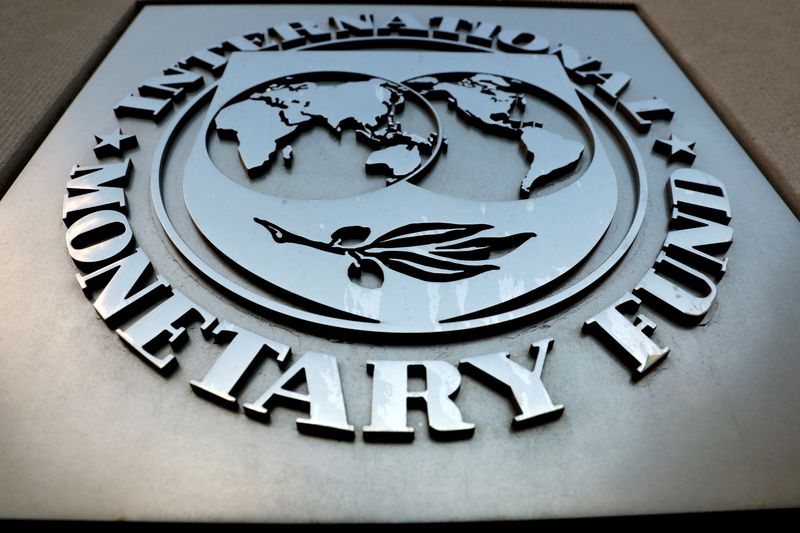PARIS (Reuters) - President Macron hosts a summit in Paris this week to discuss reform of the world's multilateral finance institutions in the face of climate change and other development challenges.
A key topic of discussion will be suggestions from a group of developing countries, led by Barbados, dubbed the 'Bridgetown Initiative'.
The key demands of the Bridgetown Initiative are:
LIQUIDITY SUPPORT
U.N. member states should fast-track the transfer of $100 billion in so-called 'Special Drawing Rights', a monetary reserve currency, to programmes that support climate resilience and subsidise lending to low-income countries.
The International Monetary Fund should also immediately suspend surcharges - additional interest payments imposed on heavily indebted borrowing countries - for two to three years.
It should also restore "enhanced access limits" established during the COVID pandemic for two emergency financial support instruments, the Rapid Credit Facility (RCF) and Rapid Financing Instruments.
DEBT SUSTAINABILITY
G20 creditor countries should redesign their Common Framework for restructuring the debt of poor countries in default, notably by speeding up debt relief talks and allowing middle-income countries to access it.
The IMF should encourage the restructuring of unsustainable debt in a way that is consistent across countries, and change the way it analyses the debt to incentivise investments that create future savings, such as those for climate adaptation.
Public and private creditors should include disaster clauses in lending deals to allow countries to divert debt payments to disaster relief; and refinance high-interest and short-term debt with credit guarantees and longer maturities.
U.N. member states should agree to raise $100 billion a year for a fund to help pay for the climate-related loss and damage suffered by developing countries.
PRIVATE CAPITAL
The IMF and multilateral development banks should offer $100 billion a year in currency risk guarantees to help drive private sector investment in projects that would help developing countries make the transition to a low-carbon economy.
Connected to that, they should also expand their support to countries to help them create a pipeline of investable projects, and make greater use of blended finance and other structures where public lenders take on more project risk.
DEVELOPMENT LENDING
The G20 and other shareholders of the World Bank, IMF and development institutions should fully implement the 2022 recommendations of a panel of experts aimed at boosting lending by the multilateral development banks.
They should commit an extra $100 billion a year in fresh capital to the various institutions and move the Special Drawing Rights capital to multilateral development banks, starting with the African Development Bank by September 2023.
Increase the leveraging of the World Bank's International Development Association, which provides concessional finance; fully fund its emergency support facility to $6 billion by end-2023; and scale up the IDA's funding to $279 billion.
Raise the access limits to concessional finance through the Poverty Reduction and Growth Trust and the Resilience & Sustainability Trust.
Assess funding eligibility in light of a country's vulnerability and provide low-cost, 50-year loans to help them invest in areas including climate resilience, water security, pandemic preparedness and access to renewable energy.
Simplify and harmonise the way countries can apply to access loans across the world, and provide more support in the process. The international financial institutions should also finance development plans that help protect shared resources.
TRADING
Groups such as the World Trade Organisation and other major trading partners should work with governments to strengthen supply chains to make them more resilient, ensure they benefit countries that produce raw materials and protect the vulnerable.

GOVERNANCE
The governmental shareholders of International Financial Institutions should change the way they are structured and run - largely by richer nations in the Global North - to make them more "inclusive and equitable".
